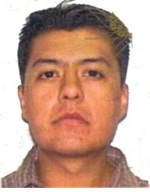
It has been shown that sleep-related breathing disorders, especially sleep apnea, are very common in patients who have had a stroke, and that they also reduce the potential for neurological recovery. Nevertheless, other sleep disorders caused by stroke (excessive daytime sleepiness, insomnia, sleep related movement disorders) can also cause or increase stroke-related disability, and this fact is less commonly known. Studies with polysomnography have shown many abnormalities in sleep architecture during the acute phase of stroke; these abnormalities have a negative impact on the patient's quality of life although they tend to improve with time. This also happens with other sleep disorders occurring as the result of a stroke (insomnia, narcolepsy, restless legs syndrome, periodic limb movement disorder and REM sleep behavior disorder), which are nevertheless potentially treatable. In this article, we briefly review the physiopathology and epidemiology of the disorders listed above in order to raise awareness about the importance of these disorders and the effects they elicit in stroke patients. Sleep disorders that are not breathing-related have scarcely been studied in stroke patients despite the fact that almost all such disorders may present as a result of a cerebrovascular event. Copyright © 2012 Sociedad Española de Neurología. Published by Elsevier Espana. All rights reserved.








